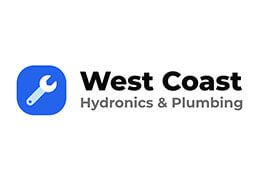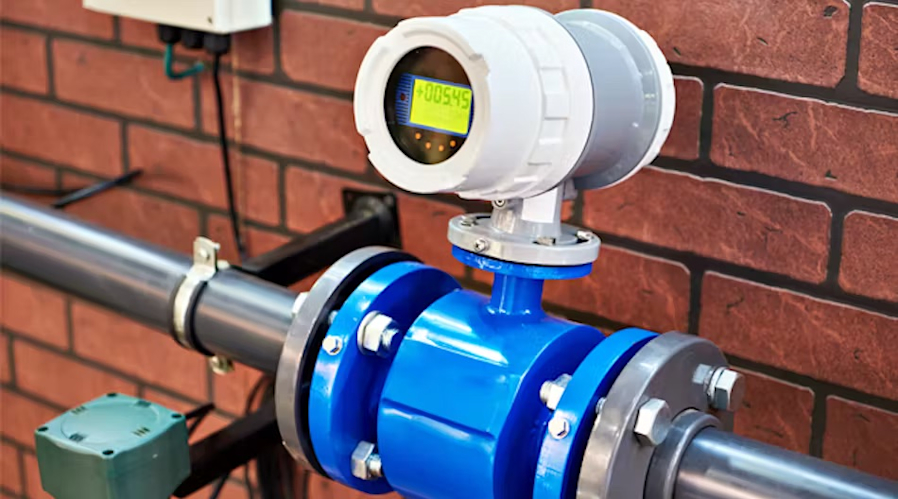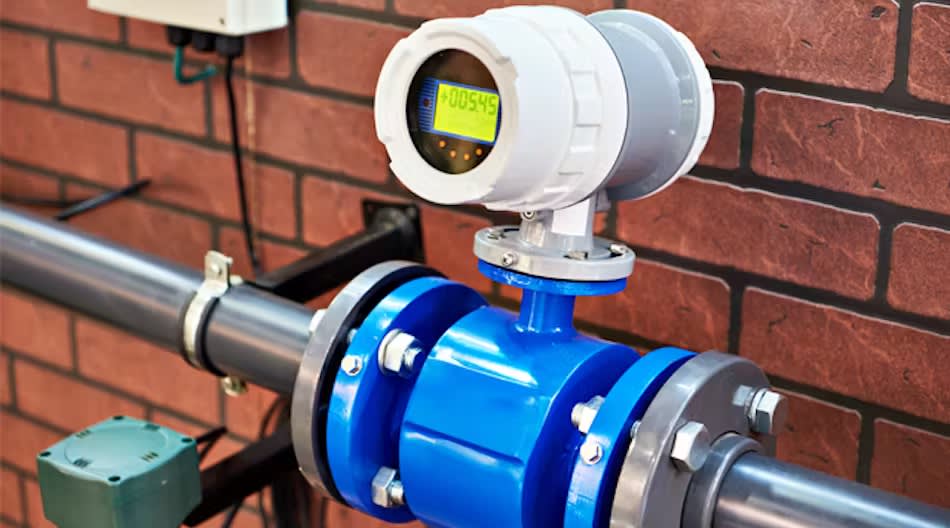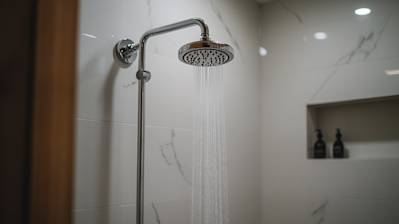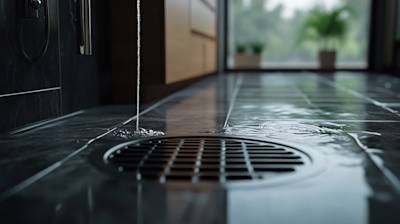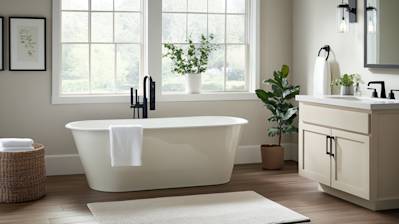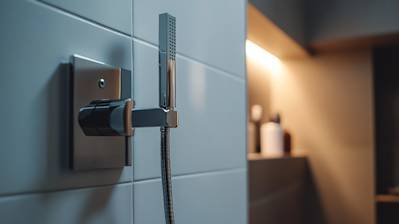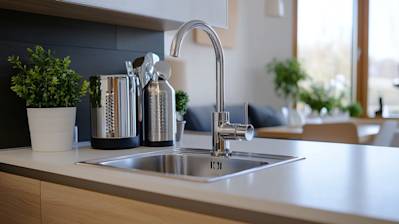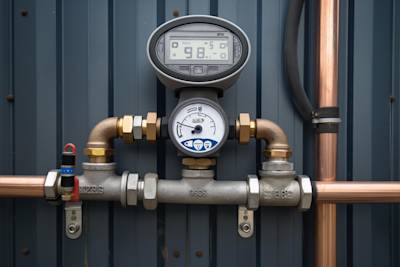Today, everything around us is rapidly becoming automated and digital, exemplified by devices like a water flow meter. A water flow meter is one of those powerful and highly efficient technologies that help in water management. This innovative tool is designed to aid in metering and managing the flow of water through pipes, offering specific benefits that enable organizations and homeowners alike to monitor and control water usage effectively. A water flow meter can measure the amount of water flowing through pipelines, which is measured in liters or cubic meters.
Understanding the Basics of a Water Flow Meter
The primary purpose of a water flow meter is to calculate the amount of fluid or water that passes through it. This water management tool is significantly beneficial in multiple industrial processes or residential water systems where precise water flow measurements are required. Water flow meters function by calculating the speed or the velocity of water flowing in a pipe, using multiple mechanisms and principles.
The Different Types of Water Flow Meters
There are diverse types of water flow meters that cater to different needs and requirements. Each type has specific features and characteristics, yielding distinct benefits. Here are the commonly used types:
- Mechanical Flow Meters: These meters include piston meters, gear meters, oval gear meters, and nutating disk meters.
- Velocity Flow Meters: These meters include turbine meters, vortex meters, electromagnetic meters, and ultrasonic meters.
- Positive Displacement Flow Meters: These meters are designed to measure the actual volume flow rate. They offer high accuracy for low flow rate measurements.
- Differential Pressure Flow Meters: These meters create a pressure drop by reducing the pipe's size which is then calculated by the meter to deduce the flow rate.
The Functionality of a Water Flow Meter
The water flow meter works on the principle of flow measurement. This technique involves the incorporation of the speed of water inside a pipe to measure the volume of water in cubic feet or liters. The measurement takes place in the meter's body, where the device measures the speed of flow and converts it to the volume of flow. This process involves mechanical parts in a mechanical water flow meter, while a digital water flow meter uses sensors and electronic parts.
Finding the Right Water Flow Meter for Your Needs
Choosing the correct water flow meter is crucial for effective water management. It is recommended to consider these elements when selecting a suitable water flow meter:
- Application: The choice should be made considering the specific application where the water flow meter will be used.
- Accuracy: Depending upon the requirement, select a water flow meter that offers the necessary level of accuracy.
- Installation: The flow meter must be easy to install and should fit perfectly in the space provided.
- Maintenance: Consider the ease of maintenance and the life expectancy of your chosen flow meter.
Integration of Water Flow Meters in Various Industries
Water flow meters significantly contribute to various industries, providing substantial benefits. Whether it's the food and beverage industry, chemical and pharmaceutical industry, the oil and gas industry, or the water treatment sector, a water flow meter plays a vital role in achieving precise water flow measurements to manage and control use effectively.
Benefits of Using a Water Flow Meter
Utilizing a water flow meter brings several advantages. Some of these include:
- Resource Saving: It helps monitor water usage, reducing wastage and saving resources.
- Cost Saving: By effectively measuring and managing water flow, it helps cut down utility bills.
- Detects Leakage: It can assist in detecting leaks, aiding in early leakage and damage detection and prevention.
- Accuracy: It offers accurate readings, enabling precise water flow management.
In conclusion, a water flow meter is an essential tool for proper water management, offering a range of benefits and operational efficiencies. Whether used commercially or domestically, the use of a water flow meter leads to substantial resource and cost savings making it an indispensable addition to water systems.
Frequently Asked Questions about Water Flow Meters
How does a water flow meter work?
A water flow meter works by measuring the amount of water that passes through it. It operates using various methodologies such as positive displacement, velocity, or mass to accurately calculate the flow or amount of water moving through the pipe or system.
What types of water flow meters are available?
There are various types of water flow meters available each serving different purposes. Common types include turbine flow meters, paddlewheel, ultrasonic, magmeter, and positive displacement flow meters. The type suitable for you would depend on various factors such as the nature of the liquid, pipe size, flow rate, and more.
Can water flow meters measure different liquids?
While water flow meters are primarily used to measure the flow rate of water, certain types can also measure other liquids. However, it's essential to use the right meter as factors such as viscosity, chemical compatibility, and particulate matter can influence readings.
How accurate are water flow meters?
The accuracy of water flow meters can vary based on the type of meter and the conditions of use. Ordinarily, a properly installed and maintained meter can offer high levels of accuracy, often within a couple percent of the actual flow rate.
Is there a required maintenance for water flow meters?
Maintenance requirements for water flow meters depend on the type of meter and the nature of the application. Some types like magnetic or ultrasonic meters have virtually no moving parts and therefore require less maintenance. However, some routine checks and cleaning may be needed to ensure optimal operation.
Can a water flow meter be installed outdoors?
Most water flow meters can be installed outdoors, although it is crucial to check the manufacturer’s details about weather resistance or any protective enclosures needed. Moreover, freezing temperatures or excessive heat may affect some meter types.
How easy is it to install a water flow meter?
The ease of installation varies with the type of water flow meter. Some meters are quite easy to install, requiring only a connection to the pipe system, while others may require professional assistance. Regardless, it’s essential to follow the manufacturer’s instructions closely to ensure accurate readings.
Are water flow meters useful in residential settings?
Absolutely. Residential water flow meters can help monitor water usage, detect leaks, and even contribute to water conservation efforts. By understanding the water consumption pattern, households can manage their water use more effectively and potentially lower water bills.
Does water temperature affect the performance of a water flow meter?
Performance can vary with temperature, although most water flow meters are designed to withstand typical variations in water temperature. Always check the specs of the flow meter to ensure it's suitable for your specific needs.
How long does a water flow meter last?
The lifespan of a water flow meter can significantly vary, depending on its type, the quality of the water being measured, and how well it's maintained. However, it's common for such devices to last several years with proper care and maintenance.
Water Flow Meter: Detailed Pros and Cons
Pros of Water Flow Meters
Accuracy In Measurements
One of the major benefits of water flow meters lies in their ability to provide precise recordings of water flow measurements. This proficiency in accuracy can endeavor to prevent potential groundwater or surface water wastage.
Ease of Installation
- Turbine flow meters and magnetic flow meters can typically be installed without needing massive alterations in the pipeline infrastructure.
- Some water flow meters are conveniently designed to be clamp-on varieties, permitting non-invasive monitoring of water flow.
Variety of Available Options
With a spectrum of water flow meters available, one can choose an item based on one’s specific needs. This creates a level of adaptability for different industries using these tools.
Critical Process Control
Water flow meters supply real-time data, enabling industries to have excellent process control that could potentially avert costly mistakes or wastage.
Long Operational Life
- Most water flow meters deliver prolonged operational life if appropriately managed and maintained.
- The elongated lifespan can contribute to cost-efficacy by reducing the frequency of replacement.
Cons of Water Flow Meters
High Initial Investment
The initial cost of buying a water flow meter typically remains high, particularly for sophisticated meters such as magnetic or ultrasonic flow meters. This might create monetary constraints for smaller industries or startups.
Sensitive to Changes in Environment
- Water flow meters can become inefficient if subjected to severe environmental changes, which could potentially affect their accuracy.
- Sudden pressure changes or abrupt temperature fluctuations can possibly result in less precise readings.
Maintenance Required
To ensure the durability and consistent performance of a water flow meter, it requires regular maintenance and checks. This can impose added cost and effort.
Dependence on External Power Source
Most water flow meters depend on an external power source for functioning. This can create constraints in locations with unreliable power supply.
Choosing the Right Water Flow Meter
When choosing a water flow meter, one must emulate a balance between costs and benefits. Understanding the specific requirements for your application, considering factors like accuracy, process control, environmental factors, and also the initial and ongoing costs can help in making an informed decision.
In conclusion, water flow meters offer a range of benefits in terms of conserving water, maintaining process control, ensuring accurate readings, and offering long operational life. However, potential drawbacks, such as initial investment costs, environmental sensitivity, maintenence, and power source dependency should also be duly considered.
Summary
Overall, a water flow meter is an indispensable tool for keeping track of the amount of water that is used in a variety of contexts. They are incredibly important in both commercial and residential settings—they help detect leaks, save water, and reduce costs. By providing a precise measurement and a clear understanding of how much water is consumed, the water flow meter adds value to any property or business.
The water flow meter provides optimum accuracy and offers a practical solution for managing water usage. Not only it enables us to understand how much water is being used, but it also encourages us to be more conscious of our utility usage. It's essential for individuals looking to optimize their water usage and sustain Earth's most precious resource.
More importantly, the motif of the water flow meter revolves around promoting awareness and conservation. By providing real-time data on water flow, it encourages a more eco-friendly approach to water usage. In an era where water scarcity is a rising issue, a water flow meter is a responsible and significant step towards conservation.
About West Coast Hydronics & Plumbing
Meet the team at West Coast Hydronics & Plumbing from Sacramento, CA. We're a trusted and reliable plumbing and hydronics solution provider, fully dedicated to servicing our diverse clientele with innovative and cost-effective solutions. Rooted in years of unprecedented experience, we're committed to delivering exceptional service and high-quality work, ensuring customer satisfaction at each interaction. Our top-notch services range from troubleshooting plumbing issues to complete hydronics installations. With unrivaled expertise in the field, we're ready to tackle any challenge and look forward to serving all your plumbing and hydronic needs.
